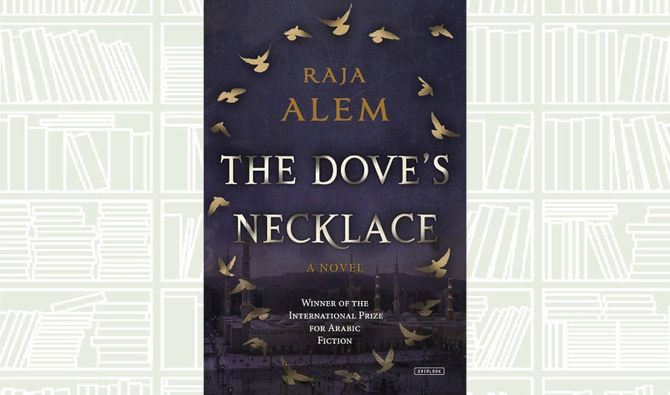“The Dove's Necklace,” which is written by Saudi novelist Raja Alem and translated by Katharine Halls and Adam Talib, is a captivating and multilayered novel that transports readers to the vibrant city of Makkah.
Alem masterfully weaves together the stories of several intersecting characters, creating a rich tapestry that explores themes of identity, spirituality, and the complexities of human relationships.
At the heart of the narrative is Jumana, a young woman whose life is irrevocably altered by the discovery of an ancient necklace. It becomes the catalyst for Jumana’s journey of self-discovery as she navigates the intense social and religious expectations of her community.
Alem explores her characters’ inner lives in her lyrical and incredibly sensitive language. A significant layer of cultural and historical depth is added to the story by the author’s examination of Makkah as a separate character, as well as Jumana’s poignant struggle to balance her personal aspirations with the demands of her faith.
What struck me most about this novel was the author’s ability to weave together the diverse tapestry of Makkah’s inhabitants. As I followed the intersecting narratives of characters like the enigmatic Basima, the troubled artist Khalid, and the enigmatic Grandfather, I was repeatedly challenged to examine my own preconceptions and biases.
Alem’s nuanced portrayal of this community, with all its complexities and contradictions, felt like a revelation.
“The Dove’s Necklace” is not merely a work of fiction but a bold exploration of the complexities of faith, tradition, and the search for meaning in a rapidly changing world. Alem’s skillful use of symbolism and metaphor, particularly in her treatment of the necklace itself, adds a layer of depth and complexity to the narrative.
Despite the novel’s weighty themes, Alem’s storytelling is never heavy-handed or didactic. She allows the reader to engage with the characters and their experiences on a deeply personal level, inviting them to consider the universal questions of identity, belonging, and the quest for spiritual fulfillment.
A fantastic piece of literature that cuts beyond genre and cultural borders, this book is a must-read for anyone interested in exploring the diverse canon of Middle Eastern literature.
























